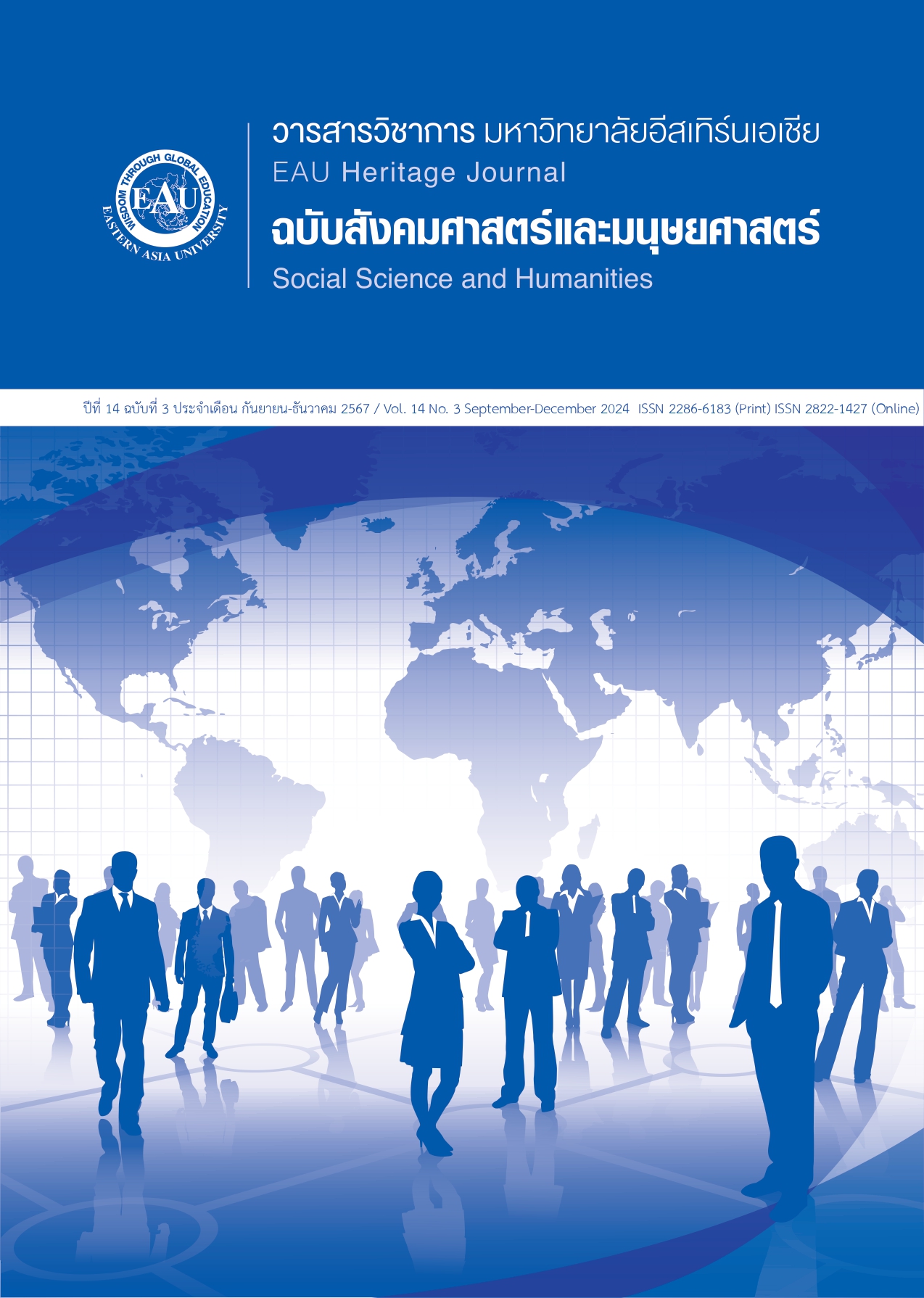Integrative Leadership of Secondary School Administrators and the Development of Competencies Required in the Modern World of Learners
Keywords:
Integrative leadership, Competencies, Modern world of learnersAbstract
Integrative Leadership is a paradigm that allows the management of secondary school administrators to take on more responsibility in a different educational context than that of primary schools; whether it is in terms of age, maturity, and necessary basic knowledge of the learners increasing, the number of learners increasing variously due to the size of secondary schools being larger than primary schools, the number of subordinate personnel. There are more supervisors, which results in more personnel development in secondary schools than in primary schools, and the budget required for secondary schools is more efficient than for primary schools. Integrative Leadership is a combination of contemporary leadership theories, including using Situational Leadership to emphasize task-oriented behavior (Task Behavior) and relationship-oriented behavior (Relational ship Behavior) and using Transformational Leadership to define the mission and create a change in the environment that facilitates and supports the development of competencies needed in the modern world of learners and using Transactional Leadership to focus activities on exchanging ideas and creating cooperation in changing the management process that will benefit the development of competencies needed in the modern world of secondary school students to be able to support their further studies at the higher education level and the professional level effectively.
References
Amabile, T. M., Hadley, C. N., & Kramer, S. J. (2002). Creativity under the gun. Harvard business review, 80(7), 52-61.
Bass, B. M. (1985). Leadership and performance beyond expectations. New York: Free Press.
Burns, J. M. (1978). Leadership. New York: Harper & Row.
Bass, B. M., & Avolio, B. J. (1993). Transformation leadership and organizational culture. Public administration quarterly, 17(1), 112-122.
Bass, B. M., & Avolio, B. J. (1994). Improving organization effectiveness through transformation leadership. Thousand Oaks: Sage Publications.
Hersey, P., & Blanchard, H. K. (1993). Management of organization behavior: Utilizing human resources. Englewood Cliffs, New Jersey: Prentice-Hall.
Kammanee, T. (2019). Competency-based curriculum and supervision new role. Retrieved from https://is.gd/o4QxWO.
Ministry of Education. (2024). Educational policies and focus in fiscal year 2024. Retrieved from https://www.moe.go.th/
Office of the Education Council. (2021). Core competency development guidelines in fundamental education during the transition to competency-based curriculum. Bangkok: Prikwarn Graphic. (in Thai)
Sangchang, C. (2018). Leadership development program of school administrators in the highlands of Chiang Rai primary educational service area office 3. Doctor of Education Program in Educational Administration Chiang Rai Rajabhat University.
Suksriwong, S. (2008). Management: From an executive's point of view. Bangkok: G.P. Cyber Print. (in Thai)
Yulk, G. A. (2010). Leadership in organizations. (7th ed.). New Jersey: Prentice Hall.





